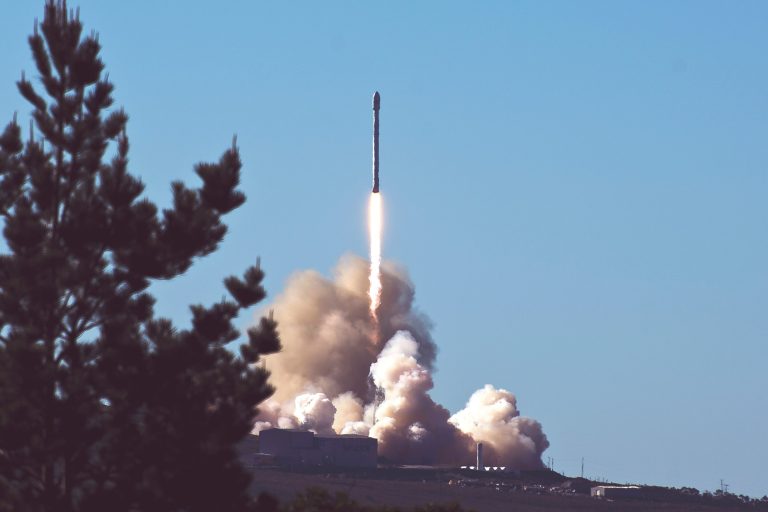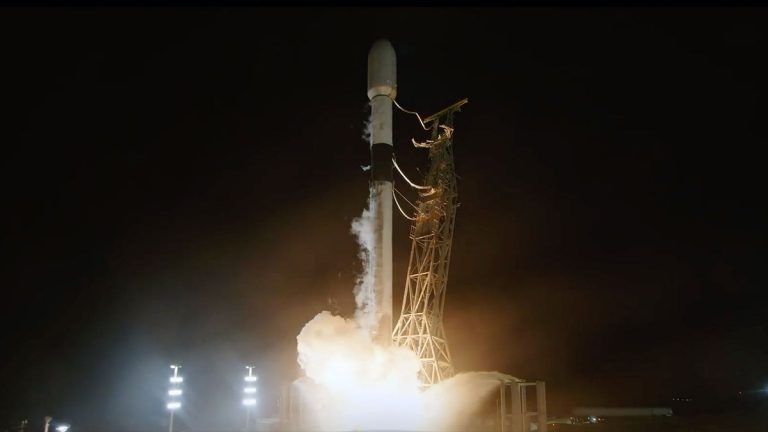
UK launches Space City Leicester to push into the final frontier (Image Credit: Space.com)
LEICESTER, England — The U.K. space sector has taken another giant leap forward with the launch of Space City Leicester, one of the largest and most connected Enterprise Zones for space-related activities in the nation. (Enterprise zones encourage business investment through incentives such as tax breaks.)
The new “Space City” cluster is dedicated to space research, production, manufacturing and development, making Leicester a key part of the U.K.’s Space Spine, according to a statement (opens in new tab).
Leicester is already a significant player in the space sector due to the University of Leicester’s long and distinguished record of achievements in space science. Every year since 1967, for example, a Leicester-built instrument has been operating in space. Recently, the university provided the Mechanical Engineering Lead (opens in new tab) for the James Webb Space Telescope‘s Mid-Infrared Instrument (MIRI).
Related: Failed Virgin Orbit launch leaves open opportunity for UK as a space ‘underdog’
Space City Leicester builds upon the successful foundations laid out by the launch of Space Park Leicester just one year ago, on March 14, 2022. The bustling research community, whose partners (opens in new tab) include Maxar, ESA Space Solutions, Airbus and Northrop Grumman, is now a world-leading space and Earth observation cluster forecast to contribute £750 million per year to the U.K. space sector over the next decade.
In collaboration with Space Park Leicester, the University of Leicester, the National Space Centre, Leicester City Council, Dock and the Leicester and Leicestershire Enterprise Partnership (LLEP), Space City Leicester represents up to £233 million of investment in new and planned facilities.
“Space City Leicester has put our city firmly on the map for research production and manufacture in the space industry,” Leicester City Mayor Sir Peter Soulsby said in a statement “But the good news doesn’t end there, as further expansion is planned to meet the demand from businesses keen to locate here from the U.K. and overseas.”

The U.K. currently holds a prominent position in science and research, with a £39.8 billion research and development budget (opens in new tab) spanning 2022-2025. In a rapidly growing space sector, the U.K. currently builds more satellites than any nation other than the U.S., reported Ian Annett, deputy chief executive of the U.K. Space Agency, at a Virgin Orbit press conference on Jan. 8, 2023.
In 2022, the U.K. was granted its first spaceport license for Spaceport Cornwall to provide a takeoff point for air-launch providers such as Virgin orbit and a potential landing site for space planes. Though the maiden launch from the site on Jan. 9 of this year by Virgin Orbit was unsuccessful, the message from the U.K. Space Agency in the hours following the mission’s failure was that the U.K. still aimed to be a player in orbital spaceflight. Having sovereign launch capability is beneficial to both the space sector and to inspire young people to get involved in STEAM (science, technology, engineering, art and math) fields, government officials said.
“We want to make sure that we continue to develop our nation so that people have those kinds of skills, and who can then continue to work either in the space industry or other technical industries in the U.K. and make sure that we become a nation that builds things and does great engineering projects again,” Annett said.
The wealth of potential within the U.K. space sector is starting to be unlocked, officials say, and enterprises like Space City Leicester are helping to build a collaborative community of researchers, businesses and industry professionals that are vital in helping not only grow the U.K. space industry but also its influence on the global stage.
“Space City Leicester combines world-leading expertise with major assets such as Space Park Leicester and the National Space Centre to boldly build on what we have here in Leicester and Leicestershire.” Andy Reed OBE, co-chair of the Leicester and Leicestershire Enterprise Partnership (LLEP), said in a statement.
“It will create a world-leading cluster of research and development that will bring growth, investment, and many hundreds of jobs to our region.”
Follow us on Twitter @Spacedotcom (opens in new tab) and Facebook (opens in new tab).








